The forest used to be the source of everything for my people, the Orang Asli. It was like a bank or a supermarket. It provided everything we wanted to eat. That was before the miners came and destroyed the forest. We grieved when the mining began but we did not know how to stop them.
We are the original people of Peninsula Malaysia. Our region and people are special. We have a close relationship with the forest and the natural environment, following the same ways we inherited from our ancestors. The forest is our home, we were raised in it, and it has traditionally been our source of livelihood.
We ask the forest’s permission to enter, so that we are blessed and protected from whatever creatures are there. When we visit a new area of the forest, we wash our face with water from the nearest river. If you don't do this, it will rain - or so the superstition goes.
In the past, we moved around wherever we liked. We could build a house and live there and then move and go elsewhere. But now it's not like before. We can't move freely. It's forbidden for us to go from one place to another. The authorities don't allow it.
I used to follow my mother deep into the forest, but now the thick forests are gone. My sadness is for the children of the current generation because they will never experience what I knew as a child before the forest was exploited by miners.
Now our forest is gone, there are many challenges for us. We must encourage our children to go to school and mix with the outside community so that they can survive and live their lives in the modern world.
In the past it was okay not to go to school, but now if children don't go to school, it will be hard for them. Like me, I didn’t go to school and it’s hard for me now.
I used to work at the mines collecting ore. After that, we thought about how else we could provide for ourselves, so we also made handicrafts, such as blowpipes and necklaces. I also tapped rubber trees, but with the uncertain weather, it was difficult.
But now we make a living as organic farmers.
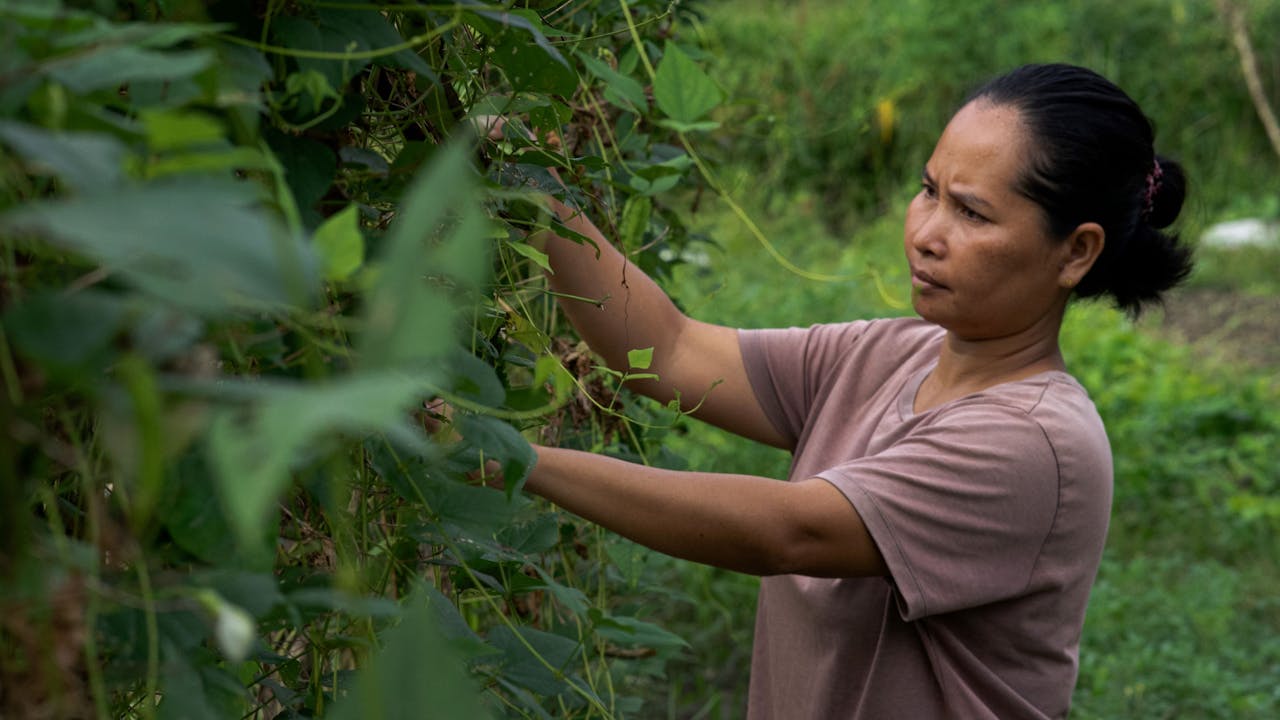
I enjoy organic farming and how it’s helping to improve my community.
© ILO/OIT Jules Rahman OngIn 2018, people from the neighbouring village introduced us to an organization that had showed them how to grow organic vegetables. We listened to their ideas and suggestions and saw how they had planted everything. I was interested and signed up for a three-month organic vegetable farming course, travelling daily to the school in Gumun village.
The next step was to find an area in our village to set up a community farm. I discussed this with everyone. We managed to get less educated people like me interested in the idea. It's open to all residents of the village.
I’m now the Chair of the Melai village community organic farm. My role is to successfully manage the farm and ensure everything runs smoothly. I enjoy this work. I think the villagers chose me because I am friendly and approachable.
Before, we didn’t come together that much, even among relatives. Community organic vegetable farming has brought us closer together and it’s also helped people in the local community find work. Now we meet regularly to discuss and find solutions, such as how to deal with troublesome insects. Organic farming created a common ground for our family and friendship ties to grow.
Community organic vegetable farming has brought us closer together and it’s also helped people in the local community find work.

Before having the organic farm, jobs were uncertain and it was a struggle to make a living. Now, as organic farmers, we no longer worry how to support ourselves. Our income is enough to support our children and pay their school fees.
We can earn over 1000 Ringgit (USD 222) on vegetable sales when the weather is good. But with this recent rainy season, and the uncertain weather, our earnings will be below that.
During the COVID-19 pandemic, work stopped in the palm oil plantations and rubber factories but vegetables were not difficult to sell at all.
Our vegetables are sold at the supermarket, Jaya Grocer. A lorry transports them to the supermarkets.
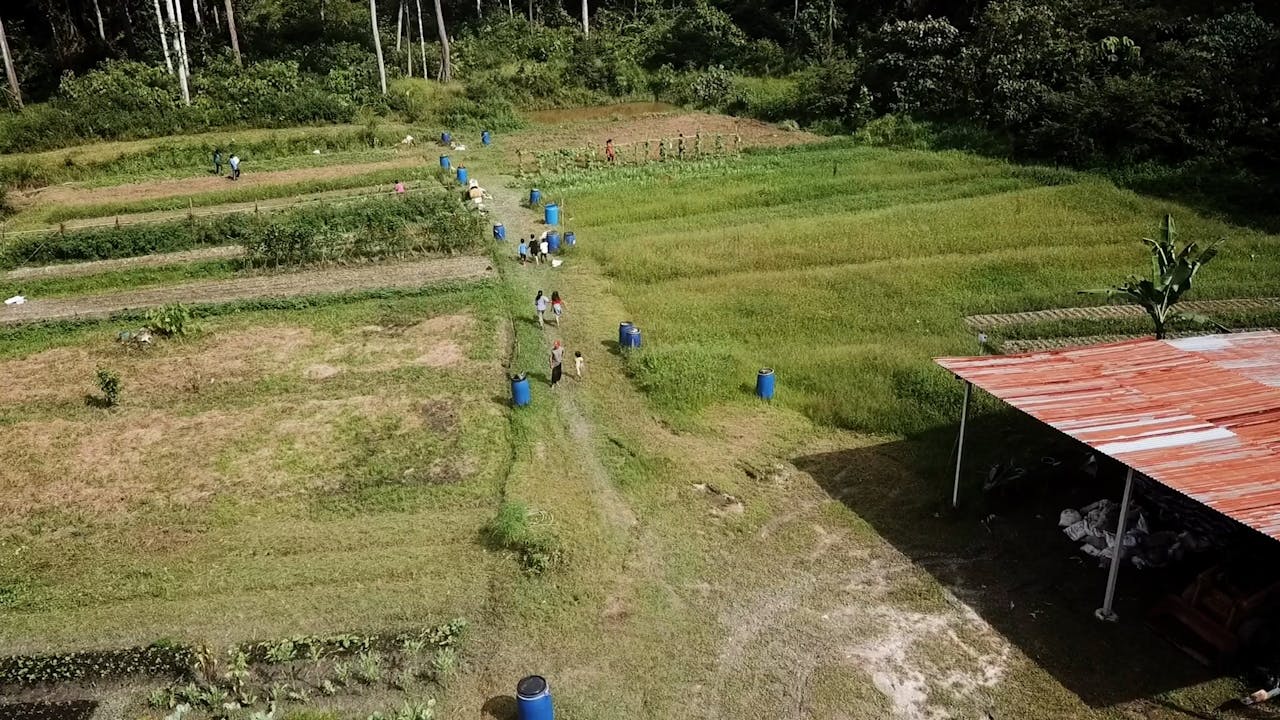
Everyone in the village is welcome to work at our community organic farm.
© ILO/OIT Jules Rahman OngThose who feel capable of taking on more work, can do more. Your income is the direct result of your efforts. Each person’s earnings are based on the plots that they farm.
For me, so long as there is interest, anyone can show up and work on the farm. For example, I'm a woman and my husband is unwell, so he cannot do heavy work. Even though it may seem like heavy work to level the vegetable patches, hoe, fertilise, and shape the beds without machinery, I am able to do it.
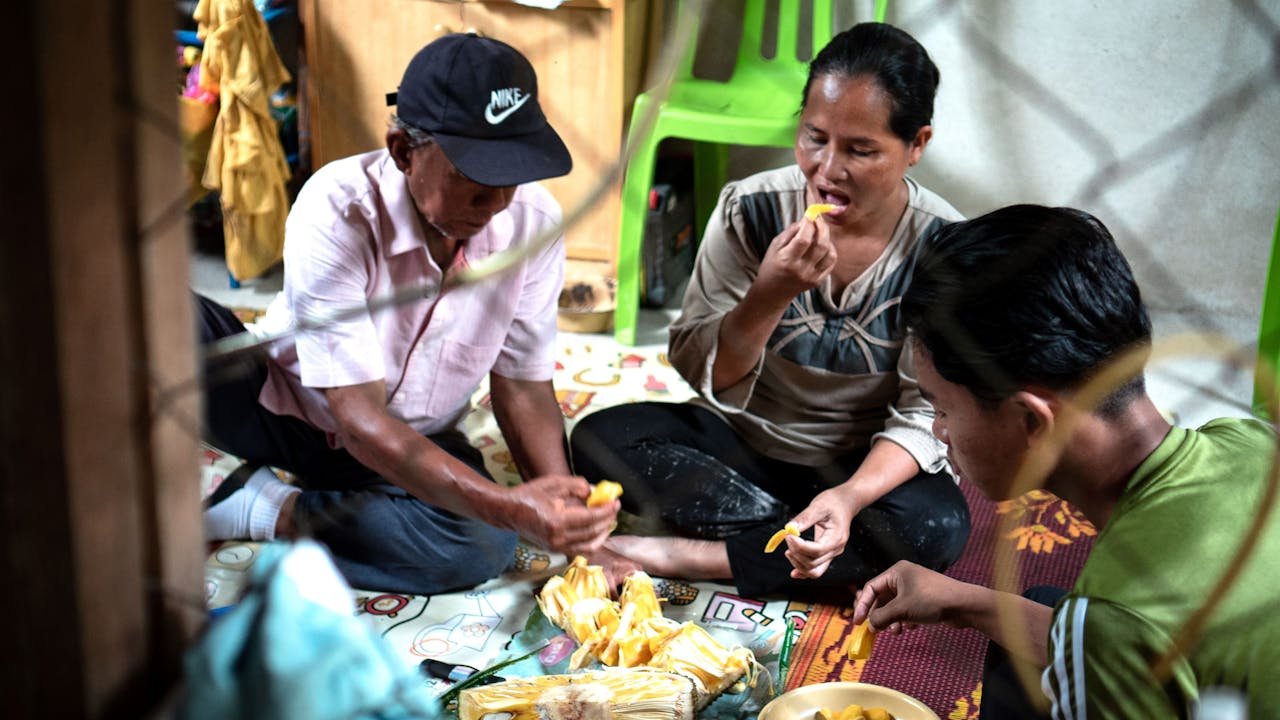
Since I started organic farming, my life has changed and I no longer have to worry about how to support my seven children.
© ILO/OIT Jules Rahman OngIf you are bearing the costs on your own, covering equipment repairs and buying things like fish fertilizer is very expensive.
But with community farming, we all contribute to a savings fund. Each time a farmer sells their produce, they give one ringgit to the fund.
This has really helped, for example, during times of natural disaster, like floods, which often happen in November.
I’ve had the experience of working on my own and when I compare it to working with the community, I see that it’s easier - the cooperation among members of the community helps to lighten the workload.
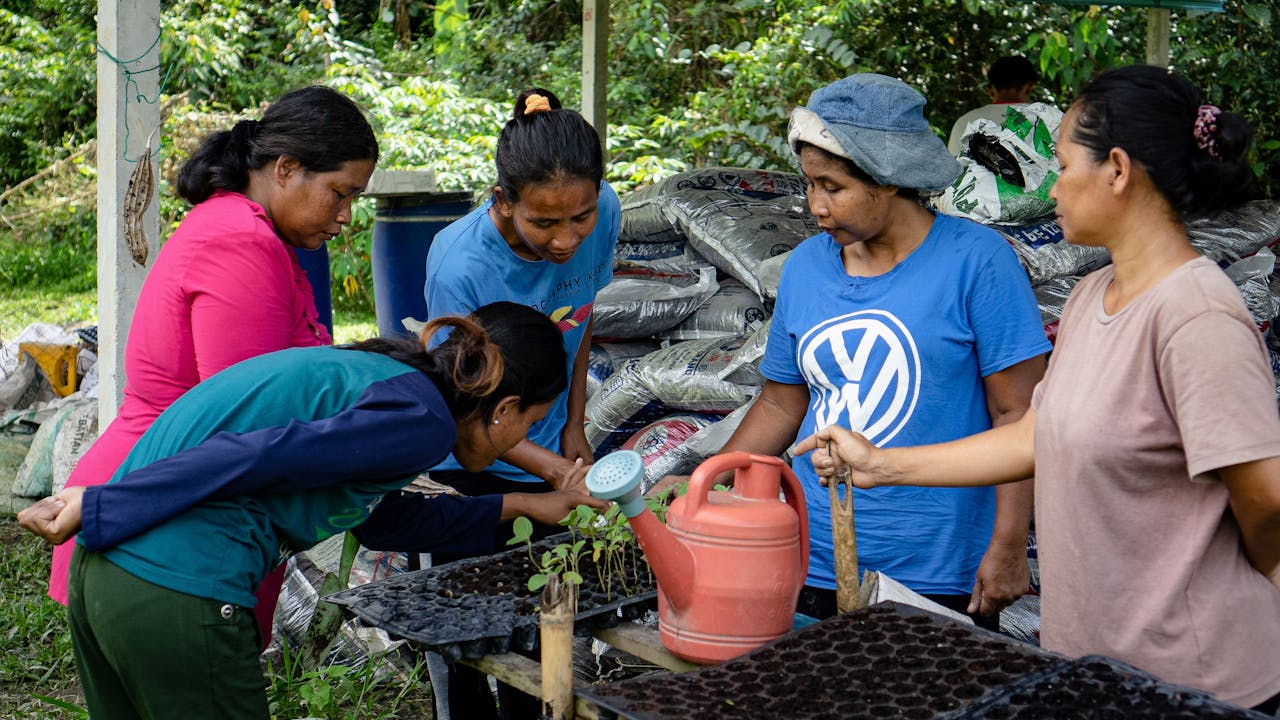
We teach our children about organic farming concepts, usually at home after school. We want to equip them so that they can develop an interest and know how to set up and establish an organic farm.
© ILO/OIT Jules Rahman OngNot only is organic farming giving us a sustainable livelihood, but it’s also helping us take care of the environment. It doesn’t need a large area - one or two acres are enough - unlike a palm oil plantation which needs hundreds of acres.
Also, we don’t use chemicals. We only use materials like chicken and goat manure that will return to the earth. When you use chemicals, the soil is damaged.
We’d like to promote the concept of organic vegetable farming with other Orang Asli communities. We plan one day to have a space where we can share our experiences with friends and the public.
We also want to build a pond and a dam so that we have a more secure source of water for the farm. Eventually we’ve also thought about farming fish.
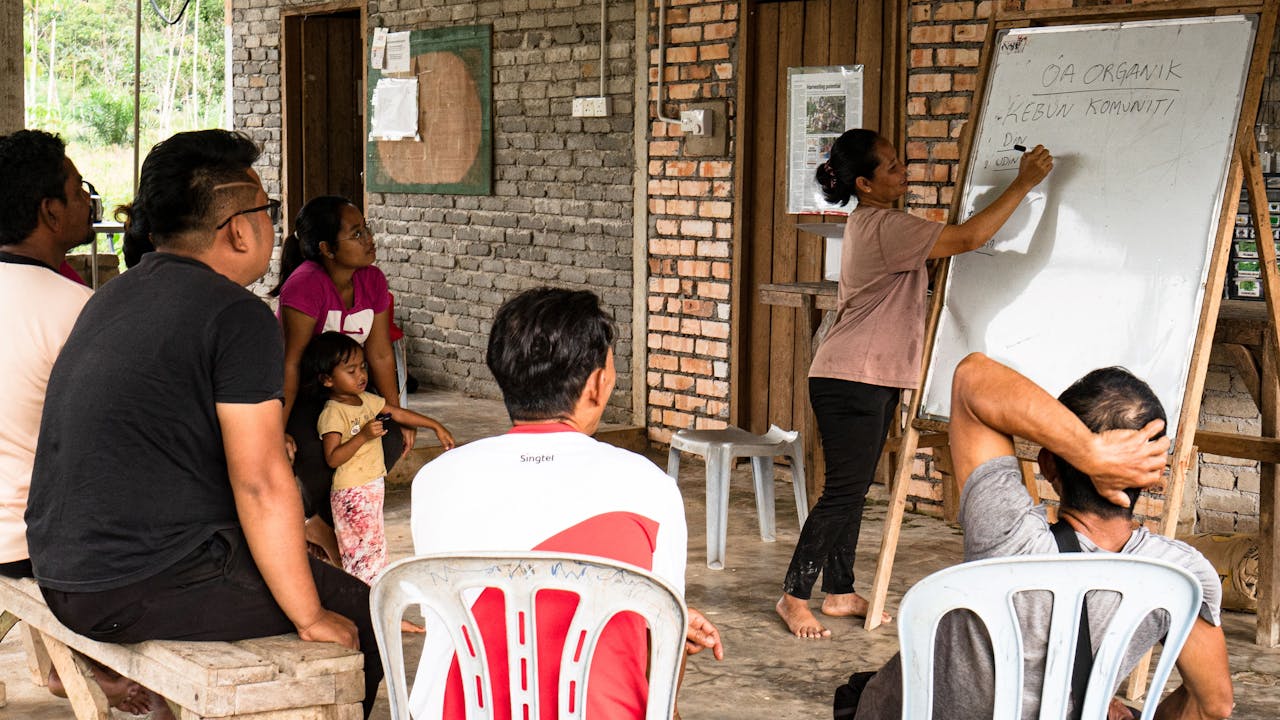
Part of my work is to share the concept of community organic vegetable farming with others.
© ILO/OIT Jules Rahman OngFor now, my hope is that my community will continue to move forward together. That no one thinks only about themselves.
I also hope that the mining will stop so that we can preserve the forest that remains. I don't really know how to protect the forest from outsiders. Perhaps letters can bring matters to the attention of those in power. I can’t do much because I don’t have an education and my writing is limited. It's young people who will need to continue the fight for our rights.
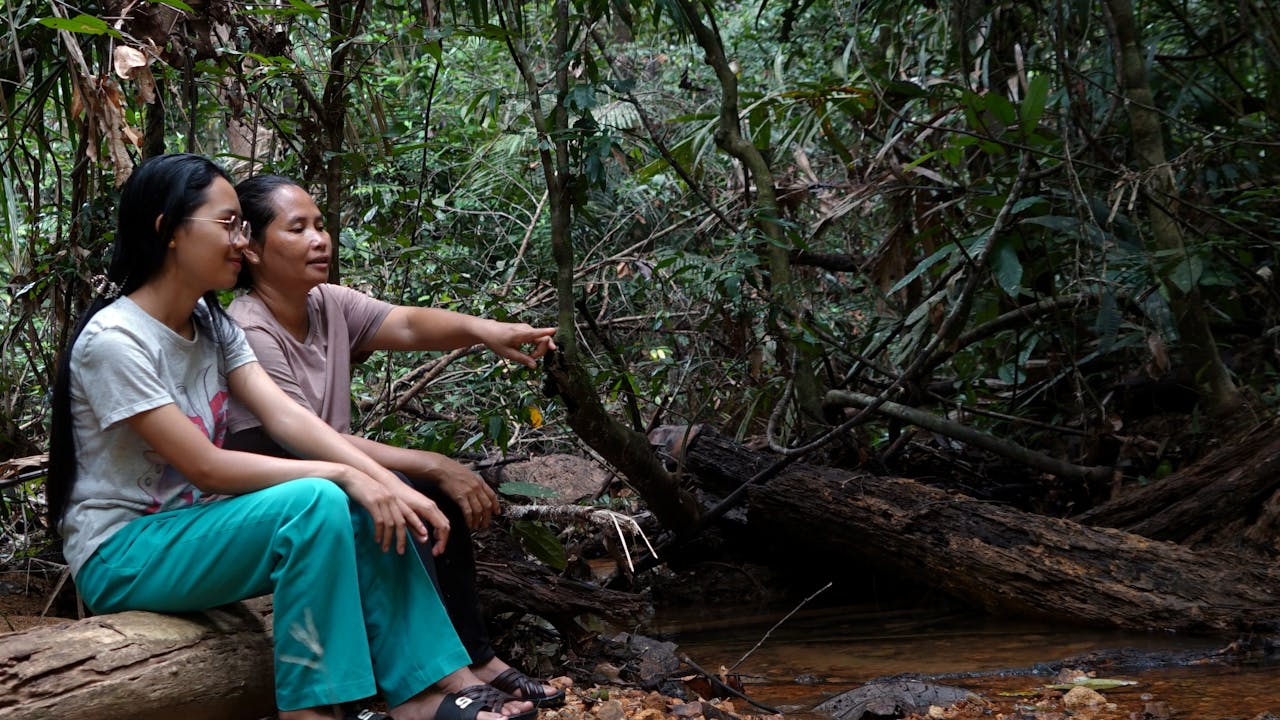
I hope the next generation, a generation which is educated, will be able to defend the rights of the Orang Asli people and help protect the forest.
© ILO/OIT Jules Rahman Ong